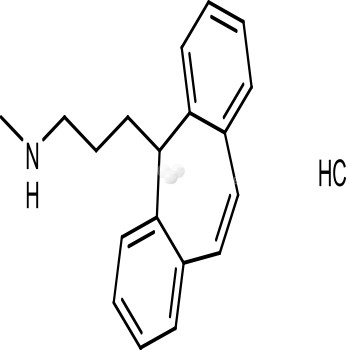- Product NameProtriptyline hydrochloride
- Brief DescriptionInhibitors
- Purification98.54%
- Biological ActivityProtriptyline hydrochloride is a dibenzocycloheptene-derivative tricyclic antidepressant (TCA). TCAs are structurally similar to phenothiazines. They contain a tricyclic ring system with an alkyl amine substituent on the central ring. In non-depressed individuals, protriptyline does not affect mood or arousal, but may cause sedation. In depressed individuals, protriptyline exerts a positive effect on mood. TCAs are potent inhibitors of serotonin and norepinephrine reuptake. In addition, TCAs down-regulate cerebral cortical β-adrenergic receptors and sensitize post-synaptic serotonergic receptors with chronic use. The antidepressant effects of TCAs are thought to be due to an overall increase in serotonergic neurotransmission. TCAs also block histamine H1 receptors, α1-adrenergic receptors and muscarinic receptors, which accounts for their sedative, hypotensive and anticholinergic effects (e.g. blurred vision, dry mouth, constipation, urinary retention), respectively. See toxicity section below for a complete listing of side effects. Protriptyline may be used for the treatment of depression.
- Target Name5-HT Receptor inhibitor
- CAS No. 1225-55-4
- Calculated MW 299.84
- Formulation C19H21NHCl
- Storage 3 years -20˚C powder;2 years -80˚C in solvent;

